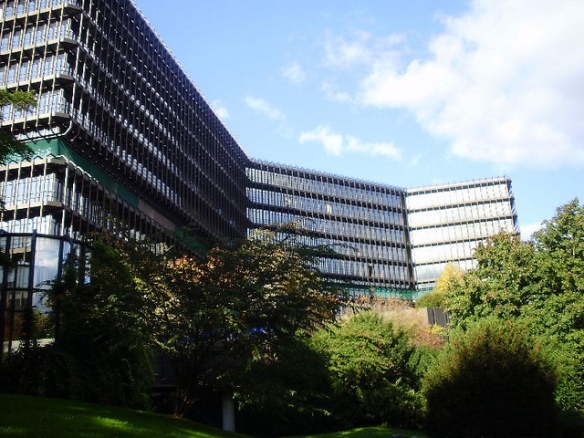
While the CRISPR-cas9 patent fight between the Broad Institute (“Team Zhang”) and the UC Berkeley (“Team Doudna”) in the US saw its first hearing at the USPTO´s Patent Trial and Appeal Board on December 5, the UC Berkeley has only a few days later received good news from the European Patent Office. An Office Action from December 8, 2016 indicated allowability of broad claims for its European patent application (publication number EP 2 800 811). Claim 1 reads as follows:
1. A method of modifying a target DNA, the method comprising contacting the target DNA with a complex comprising:
(a) a Cas9 polypeptide and
(b) a single-molecule DNA-targeting RNA comprising:
(i) a DNA-targeting segment comprising a nucleotide sequence that is complementary to a sequence in the target DNA, and
(ii) a protein-binding segment that interacts with said Cas9 polypeptide, wherein
the protein-binding segment comprises two complementary stretches of nucleotides that
hybridize to form a double stranded RNA (dsRNA) duplex,
wherein said two complementary stretches of nucleotides are covalently linked
by intervening nucleotides,
wherein said contacting is in vitro or in a cell ex vivo; and
wherein said modifying is cleavage of the target DNA.
A restriction to either eukaryotic or procaryotic cells seems not to be present. The contacting of the target DNA to be modyfied by the method, however, according to the claim has to take place in vitro or in a cell ex vivo.
A notice of allowance from the EPO (communication under Rule 71(3) EPC) can be expected soon.
Disclaimer: Neither I myself nor the patent firm Betten & Resch, of which I am a partner, is involved in any patent cases relating to CRISPR-cas9 technology.
(picture by sporst)
